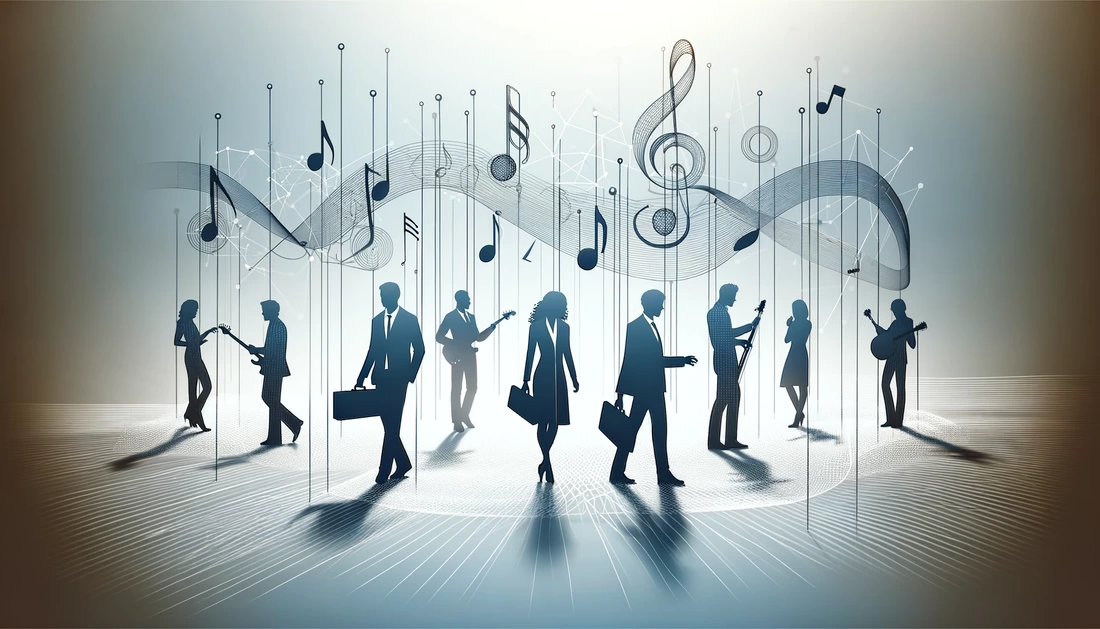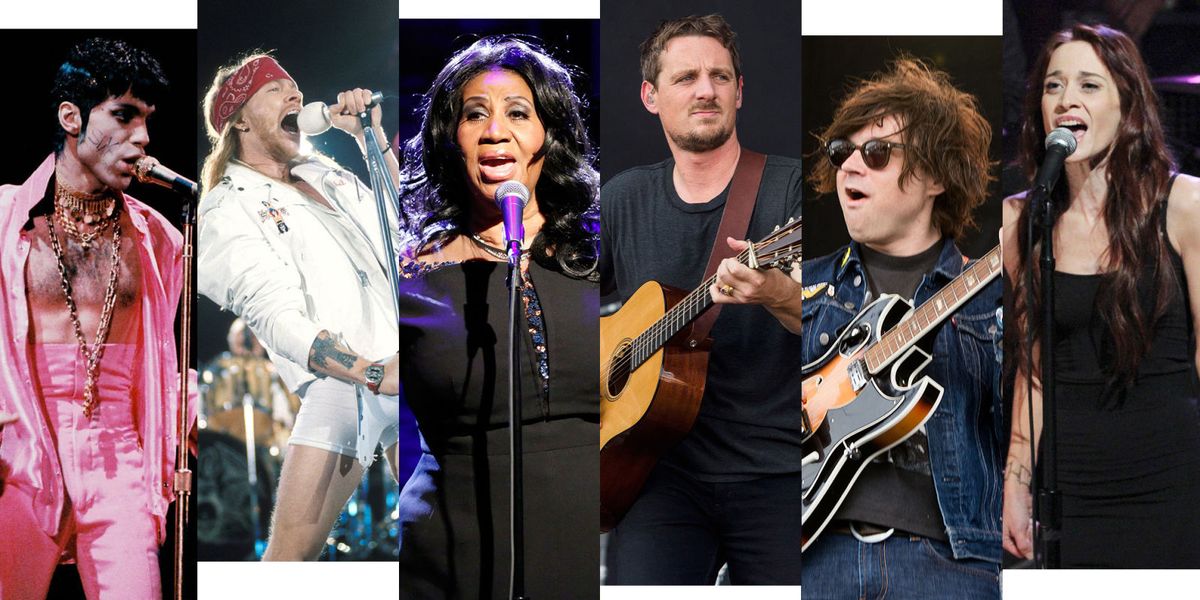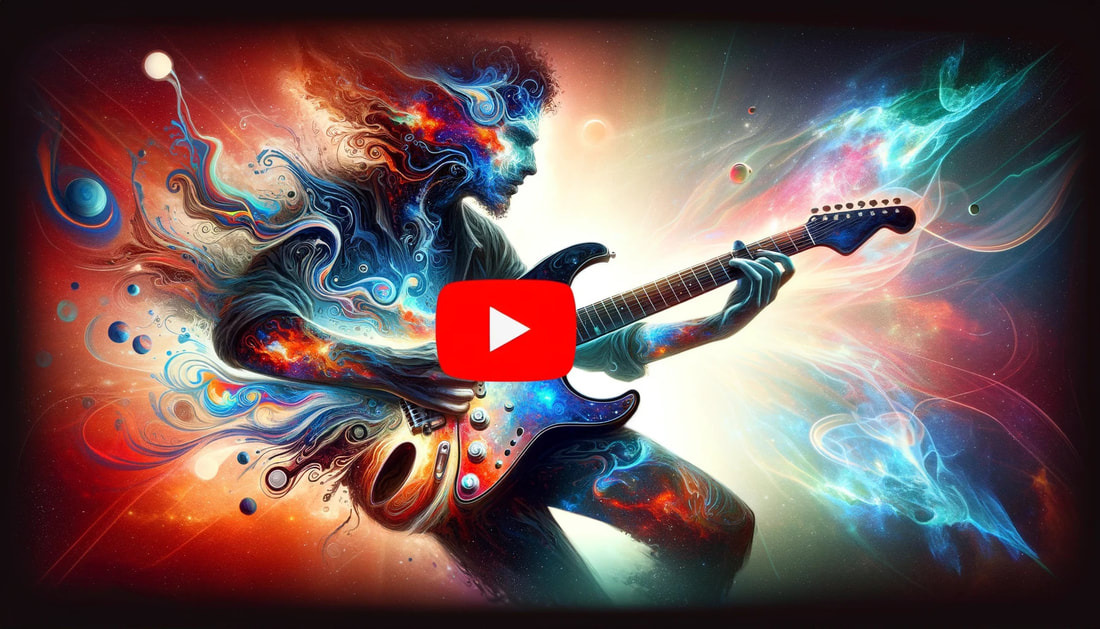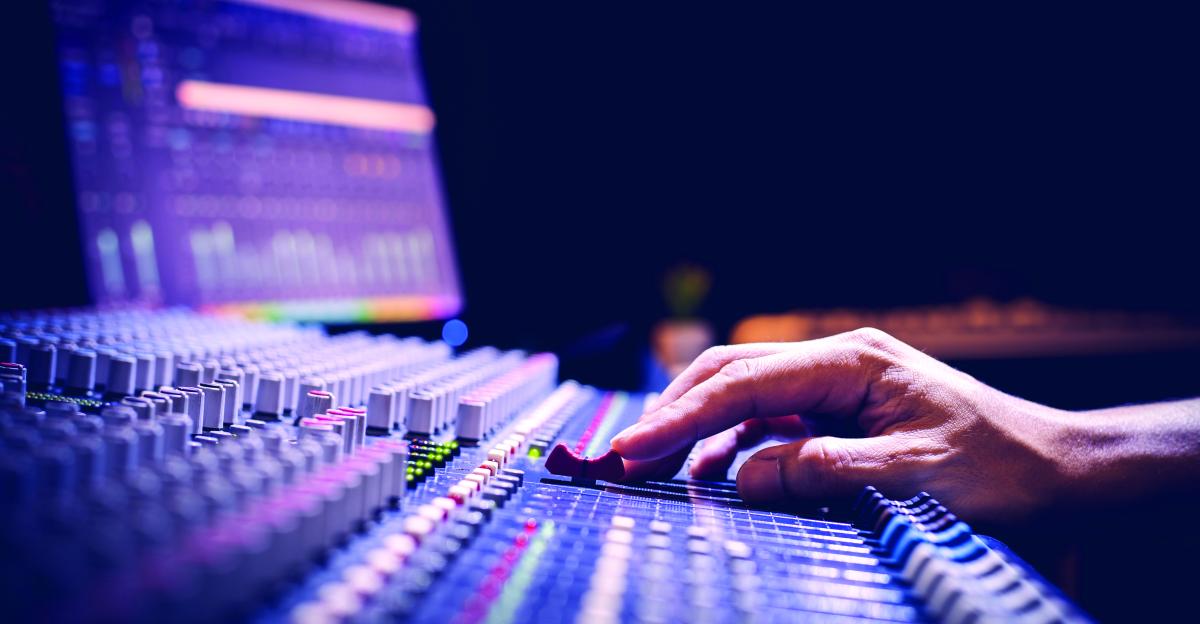|
In this post, we delve deeper into identifying your target market and crucially, how to find the right people to submit your music to. This step is critical in bridging the gap between creating music and successfully licensing it. Let's explore how to pinpoint where your music fits and how to get it into the right hands.
Target Markets: Where Does Your Music Fit? TV Shows: Analyze different TV genres and their musical needs. For example, a reality show might need upbeat, energetic tracks, while a drama series may require more emotive, subtle scoring. Research current popular shows and identify the music supervisors or production companies behind them. Films: Each film genre has its unique musical requirements. Investigate upcoming film projects and the studios producing them. Pay attention to indie film festivals as they are often more accessible for emerging artists. Commercials: Ads require music that aligns with the brand's identity. Research advertising agencies and the brands they represent. Look for ads that use music similar to yours for a better fit. Emerging Media Platforms: Web series, podcasts, and online content creators frequently look for fresh music. Identify popular content in these categories and note the production teams or channels hosting them. Understanding Different Genres and Themes Genre-Specific Targeting: Your music genre can often dictate your primary targets. For instance, classical or instrumental pieces might be more suitable for film scores, while pop and rock tracks might find a better home in TV shows or commercials. Thematic Alignment: Assess the mood and themes your music conveys. Does it fit better with action-packed sequences, emotional scenes, or lighthearted moments? This can guide you to the right type of content. Cultural and Demographic Reach: Your music might resonate more with certain cultural groups or age demographics. This understanding can help in targeting content that caters to these audiences. Finding the Right Contacts and Submission Tips Researching Music Supervisors and Producers Music Supervisors: These are the key figures in selecting music for TV, films, and ads. Use industry directories, LinkedIn, and credits in media to find their contact information. Production Companies: Especially for films and TV shows, reaching out to production companies can be beneficial. Websites, trade publications, and film credits are good resources. Networking and Industry Events: Attend film festivals, music conferences, and industry meetups. Networking can lead to direct introductions and valuable contacts. Join online forums and social media groups dedicated to music licensing and media production. Utilizing Online Databases and Platforms: Several online platforms and databases list contact information for music supervisors and production companies. Subscription services like IMDbPro are a good resource. HTLYM Premium also offers an updated directory of contact information for those working in sync licensing. Learn more. Preparing Your Submission Ensure your music is professionally recorded and mastered. Create a compelling and concise pitch, highlighting why your music is a fit for their content. Include links to your music (preferably hosted on professional platforms) rather than attaching large files. Follow-Up and Professionalism: After submitting, a polite follow-up email can be effective. However, avoid being overly persistent. One follow up email, several weeks after your initial submission, is usually sufficient. Maintain professionalism in all communications. First impressions are crucial in this industry. Conclusion Successfully licensing your music involves not just creating great content but also strategically identifying and reaching out to the right people in your target market. This module has equipped you with the knowledge to find these contacts and effectively present your music for potential licensing opportunities.
0 Comments
The digital era has opened numerous doors for artists to showcase their talent, and releasing cover songs is a great way to bring more exposure to your skills and your brand. However, as exciting as it may be to share your rendition of a popular track, it's crucial to understand the legalities involved in covering and streaming songs. This post aims to guide artists through the process of legally licensing and streaming cover songs.
Understanding Copyright Laws First and foremost, it's important to grasp the basics of copyright law. The original creator of a song holds the copyright, which includes exclusive rights to reproduce, distribute, and perform the song. When you cover a song, you're essentially reproducing and performing someone else's copyrighted work, which requires permission. Obtaining Mechanical Licenses To legally release a cover song, you need a mechanical license. This license allows you to record and distribute your version of the song. In the U.S., mechanical licenses are typically obtained through agencies like The Harry Fox Agency (HFA), Music Reports Inc, Easysong.com, or through the song's publisher directly. These agencies handle the paperwork and ensure royalties are paid to the original songwriters and publishers. Digital vs. Physical Releases The process differs slightly for digital and physical releases. For digital releases (like streaming on Spotify or Apple Music), services often secure mechanical licenses on behalf of artists. However, for physical releases (like CDs or vinyl), you must obtain the license yourself. Performance Rights and Streaming Streaming a cover song live (like on YouTube, Twitch, or Facebook Live) involves performance rights. This is usually managed by the platform you're streaming on, as they typically have blanket licenses with Performance Rights Organizations (PROs) like ASCAP, BMI, or SESAC in the U.S. Always check the platform's policies to ensure compliance. Sync Licensing for Videos If you're creating a music video for your cover, you'll need a synchronization (sync) license in addition to a mechanical license. Sync licenses are obtained from the copyright holder and give you the right to sync their music with your video content. (Again, websites like easysong.com can facilitate this process.) Royalty Payments and Reporting When you stream or sell your cover song, you owe royalties to the original songwriter. Through your mechanical license, these royalties are typically calculated and distributed by the licensing agency. Ensure you report your sales and streams accurately to avoid legal complications. Best Practices
Conclusion Covering and streaming songs is a fantastic way for artists to connect with their audience and pay homage to their musical influences. By understanding and adhering to the legal aspects of licensing, you protect not only yourself but also respect the rights of the original creators. Happy covering! I’m putting the finishing touches on my latest course, “The Complete Musician’s Guide To Making Money With AI”. The full video course will be released on Monday, January 15. Pre-Order the course between now and Sunday, January 14 and save 50% off the full price. You’ll get access to the eBook that is included in the course immediately and get full access to the vide course when it’s released on Monday. Why I’m Excited About AI As A Musician One of the most exciting aspects of creating this course was spending time with a lot of different AI tools that are on the market and exploring new ways to create, produce music and market music. As a musician, I’m really excited about the advent of AI technology, for a number of reasons. Although, ironically, none of them have to do with AI music creation. I’m sure the technology will progress, but at this point, the aspect of AI I’m the least excited about as a musician is generating music with AI. So far, the tools I’ve explored and tried that generate music using AI, just aren’t that impressive. At this point, when it comes to my music, I’m only using AI tools to assist with things like music production and music marketing. Perhaps as the technology evolves, I will incorporate more AI elements into my actual music. But for now at least, I’m simply using AI to assist me with other aspects of releasing music. In this post I’ll discuss two AI driven tools that I’m currently using that are proving to be powerful allies in creating and releasing music more efficiently. A Song A Week This year, one of my goals related to music, is to write, record and release one new song a week. This is a goal that I previously wouldn’t have been able to pull off. But thanks to several different AI driven tools, as well as progress I’ve made in terms of learning how to produce my music better, I can now see a viable path forward. One of my biggest sources of frustration as a musician and creative, has been my inability to produce music as quickly as I’d like, at a quality level I’m happy with. I’ve always had this sense that I have way more music inside me than I’m able to release, both for things like licensing opportunities, and just in general. I make music because I have a deep desire to create. It’s the best way I know how to explain what drives me as a musician. I simply love the process of writing and creating music and it’s one of the few passions that I’ve been able to maintain throughout my adult life. In fact, this desire has only grown stronger. But there have been times where I’ve felt very stifled and held back as a musician. For example, I would write a song I really loved, but then struggle to get it recorded quickly. Or I’d manage to get a song produced that I really loved and felt excited about, but I didn’t have a budget to shoot a music video or a budget to promote the song effectively. And so on… I’m sure most musicians can relate to this sense of frustration. This year, I’m approaching things differently, and I’m pro-actively looking for solutions. Instead of just banging my head against the wall and getting frustrated, I’m finding ways over or around the obstacles that present themselves. I see AI technology as an ally in this mission. Two Powerful AI Tools For Musicians Ok, with that out of the way, let’s discuss two specific AI tools that you can use as a musician. These are tools that I’m using for my song a week project and I’ve been really happy with the results I’m getting so far. My first song of the year, a song I wrote on New Year’s Day, is called “Stranger In This Place”. I wrote the song on New Year’s Day, and then I spent the rest of last week recording and mixing the track. I was able to finish a mix that I feel is “Youtube ready” and create a music video for the track by Sunday. One song down, 51 to go! The Tools I Used… Landr For this song, I used Reaper to record and mix the track, and then when I had a mix that I liked, I used Landr, an AI driven mastering tool, to master the track. I’ve been using Landr a lot the last few weeks and I’m really pleased with the results I’ve been getting with their service. I mentioned Landr in a previous email and I’m going to be doing a podcast soon with their director of product development. Learn more about Landr here. Runway ML I used an AI “text to video” program called Runway ML, to generate the music video. Runway ML allows you to generate video clips, using “text to video” prompts. You simply describe what you’d like each scene to look like and then it creates a video clip based on your prompt. It will also generate previews of each scene, prior to generating each video clip, so that you have an idea of what each scene will look like before you render them. These two tools alone have been a game changer for me. I now have a way to quickly create music videos that are aesthetically pleasing, and with Landr, I have a way to get my mixes sounding even better than I could on my own. Now of course, there is still a lot of work involved and I’ll still have to do more work on the mix before I pitch the track for licensing opportunities. But my goal this year is to grow my social media, and to get more music out into the world that connects with people. Thanks to AI, these goals seem more realistic than ever. Check out my latest song here: Check out Landr here. Check out Runway ML here. Learn more about my new course, “The Complete Musician’s Guide To Making Money With AI” here. One of the perks of running my website and having a pretty big newsletter and platform, is that from time to time I get free access to different industry tools and resources. The last few months I’ve been putting together a course all about using AI as a musician. During that process, I’ve had the opportunity to check out a lot of different AI tools on the market for musicians. I’ll be discussing a lot of them in my soon to be released video course and website all about how to use AI to make more money as a musician, which I’ll be releasing January 15. But today I have a fun post about an AI driven tool for musicians that is pretty amazing. A few weeks ago, Landr, a company that offers AI driven mastering online, contacted me and offered me free access to their site and tools, if I would consider promoting their service. Now, if you’ve been on my email list for any length of time, you’ll know that I rarely promote other products and services. It’s just not what I do. But I had a chance to sit down yesterday and actually play around with Landr’s mastering tool, and I’m pretty blown away. Now, one caveat, which I want to preface upfront, is that I am not a music producer per se. Yes, I record music and I have a home studio which I use to write and lay down many of the tracks for the songs that I create, which I’ve been doing for many years. But I’ve never really considered production to be my forte and I typically outsource a lot of the production and mastering for the tracks that I license to other producers. I realize there is some controversy when it comes to tools like Landr, and I have no doubt there are mastering engineers out there that can outperform what the Landr tool does. It goes without saying, that in music production, like anything else in life, you get what you pay for. But, with that said, I have ears and I know what sounds good to me, in terms of production and mastering, and for the price, what Landr does is pretty mind blowing! Not all musicians have the budget to hire a professional producer and mastering engineer for every track they produce. A lot of times, probably even the majority of times for indie artists, it’s simply not feasible. Landr seems like a great alternative for these situations. I’m going to share with you a few of my own tracks that I mastered yesterday. All I did, for all three tracks below, is simply upload my tracks to Landr and in about two to three minutes each track was fully mastered, with several different options in terms of volume and mastering style. The first track I’m going to show you is a demo for a track that I wrote the day before yesterday. Now, I want to stress that this is a really rough demo, and a far from finished track. But I’m showing you this one first so you can really hear the difference with a track that sounded pretty rough to start with. This will also give you a little insight into my writing and recording process. What I will typically do when I’m writing a song, especially if I’m really feeling it, is just start making a demo right away. The first demo is usually pretty rough, as I’m just trying to get my idea down and I’m not really concerned about performance or nailing the takes and so on. In this initial stage, I’m just fleshing the track out. Sometimes, during this stage, I’ll even record with fans on and noise in the background. I’m just getting my ideas down with no concern for sonic quality. Then, when the song is finished, I’ll go back and re-record each track from the initial session, paying more attention to performance, the quality of the recording, noise issues, timing and so forth. Then, depending on the track, I might simply send the stems to one of several producers I work with and have them finish the track from there. Or, I might have one of a few different collaborators add parts to the track, or in some cases I’ll have a different vocalist re-record my vocals, if it’s not quite the right fit for my vocal range. Every track is different and it’s ultimately about serving the song. This particular song was just me laying my ideas down. I started the process of cleaning up the tracks and the timing on some of the guitar takes, but again, it’s rough and raw, even though the arrangement and vision for the song is pretty much finished. Here’s my unmastered demo (mp3 version): Now, check out the mastered version that Landr created (mp3 version). I want to stress, I didn’t do anything else to the track but master it using Landr, which again, took about two minutes to process. Now, again, I’m not an expert on mastering, but that sounds night and day to me. The individual parts are much easier to discern. It’s not just louder, but it’s also brighter. The drums are crisp. I can actually hear what I’m getting at with the song and can better imagine what the finished version will sound like. And again, this was just a demo, but it’s a pretty remarkable difference to my ears. By the way, this particular track is one I’ll likely find a different vocalist to sing. If you’re a vocalist and would like to take a stab at the vocals, comment below! Next, let's check out a track that was a little more fully produced, but still not finished. This is a track I recorded last year called "And The World Just Turns". This is a track that I started working on but never finished. Sometimes this will happen. I'll start a track and for whatever reason something about it doesn't quite sit right with me and so I don't take the time to completely finish it. It takes considerable time and energy to complete a track so if I'm not completely feeling it, I will sometimes move onto other tracks that I'm more inspired by. Anyway, let's hear the before and after. Here's the original version (mp3): Here's the Landr Mastered Version (mp3). Again, it's a pretty huge difference. The mastered version is much clearer and brighter. Ok, finally, let's do one more. This track is called "Light Ahead" that I did a few years ago with my friend MJ, in his home studio. We already did some mastering to this track, but I wanted to try this one to see how much of a difference Landr would make. Here's our version (mp3): Here's Landr's mastered version (mp3): Now, one caveat about the last two tracks. These tracks were both tracks that I had on my Youtube channel, but didn't have quick access to the masters. So what I did was I downloaded the mp4 from Youtube, converted that to mp3, and then mastered the converted mp3.
There was obviously some degradation in quality in going from mp4 and then back to mp3, but what you are hearing is the mastered mp3 version of the mp3 I uploaded To Landr, which in a way makes what Landr does that much more impressive. Landr does a remarkable job both in boosting the volume and cleaning up the EQ of the low quality mp3s I uploaded. Again, I'm not a producer, but I have ears, and in my opinion Landr is an amazing mastering tool for the money. Learn more about Landr and get 20% off the regular price here. For more information on my upcoming course, "The Complete Musician's Guide To Making Money With AI", go here. |
Archives
July 2024
Categories |




 RSS Feed
RSS Feed